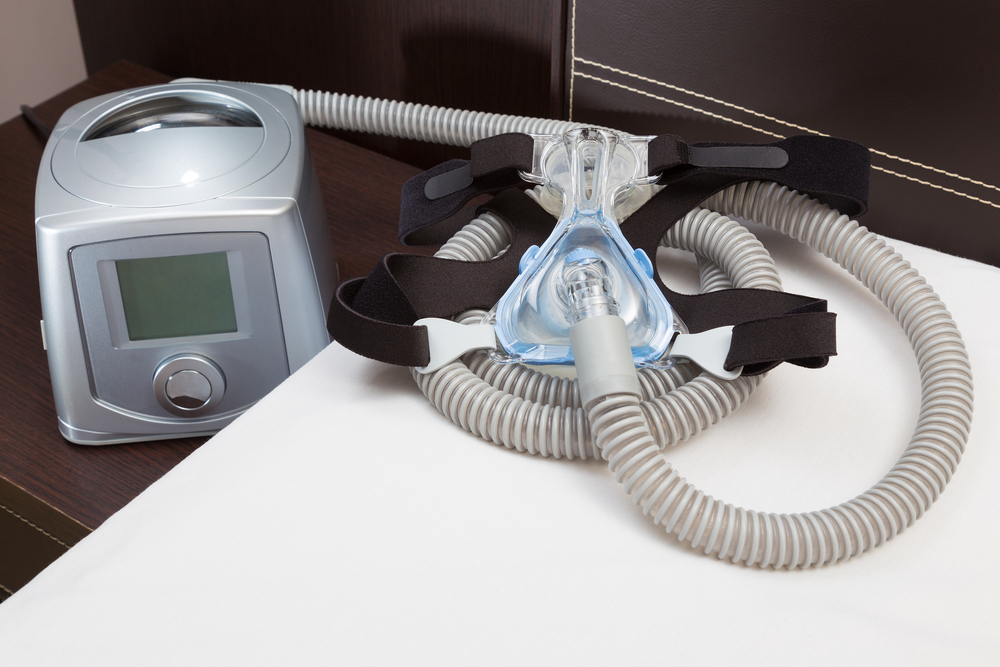Tips for Traveling when You Have Sleep Apnea
 Sleep apnea can have a large impact on your life, but can be largely corrected through the use of a CPAP machine. However, if you’re planning a trip any time soon, it’s important that you take proper consideration for traveling with that important piece of medical equipment. So, here are some helpful tips that will make traveling with your CPAP machine simpler and easier.
Sleep apnea can have a large impact on your life, but can be largely corrected through the use of a CPAP machine. However, if you’re planning a trip any time soon, it’s important that you take proper consideration for traveling with that important piece of medical equipment. So, here are some helpful tips that will make traveling with your CPAP machine simpler and easier.
Bring Related Documents
Generally speaking, you shouldn’t need any supporting documents to prove your need for a CPAP machine. This type of equipment is widely recognized by travel agencies, including the TSA. However, it’s always a good idea to bring along your prescription for the CPAP, as well as a letter of medical necessity.
The prescription can come in handy if you need to replace any parts of your CPAP while you’re traveling. The letter from your doctor is good to have in case you need to use your CPAP while in flight or on a train. While most individuals working for travel lines won’t give you any trouble for using your CPAP during travel, it never hurts to have supporting documentation.
If you’re not sure what a letter of medical necessity should include, here are some things to double check for:
- On your doctor’s letterhead
- Your name, the date, and your diagnosis
- A written statement that you require the CPAP for your sleep apnea
- Your doctor’s name, signature, and contact info
With these two pieces of documentation, you’ll be better prepared should any issues arise while you travel.
Bring Proper Accessories
In addition to bringing the standard items that your CPAP requires to operate (tubing, mask, etc.), it is also a good idea to bring along a few additional accessories to simplify your travel experience. First, be sure to keep your CPAP in a travel carrying case. This will help to protect it during transit, and keep all of the parts in one place.
Consider bringing along an extension cord. Many times, the outlets close to your bed are used for lamps, clocks, phone chargers, and other electrical items. Having an extension cord will allow you to use your CPAP while still keeping those other items close at hand.
You may also want to consider bringing a large Ziploc bag for going through security checkpoints. (More on that in the next section.)
Finally, remember that you won’t be allowed to bring along your own distilled water if you’re going through the airport, as liquids are not permitted through security. You may have the option of buying some inside the airport after passing through the checkpoint. But if not, using tap water for short periods of time will not be harmful to you or your CPAP’s water chamber. Just be sure to switch back to distilled water as soon as you are able.
Going through Security
If you’ve never traveled with your CPAP before, it’s important to know that you will be required to pull out the machine and place it in a separate tray for TSA inspection. So, be sure your CPAP is accessible, and remember to remove it just as you would any other electronic device you travel with. However, you can keep your tubing and mask in your bag. This is why we recommend having a large baggie with you; keep those items in the Ziploc bag, inside your carryon, so that they can stay clean and sanitary while the rest of the machine is inspected.
When your CPAP machine is close to going through the x-ray, alert the security agents that you have a CPAP. They’ll appreciate the heads up, as these are usually inspected by hand, and will save them time of running it through the x-ray unnecessarily. Once your CPAP has been inspected, pack it back into its travel case and return it to your carryon.
Using Your CPAP on a Plane, Train, or Other Transport
As mentioned above, you might need to use your CPAP while in flight, on a train, or on another mode of transportation. If you think this will be the case, remember that many of these vehicles don’t have outlets, so you’ll need to bring a battery-operated travel CPAP in order to use it in transit. If you’re concerned about this, contact your travel carrier and ask about their restrictions on using such a device during travel, and whether or not outlets are available.
If you’re looking for a travel CPAP that will make your trip smoother and easier with your sleep apnea, stop by one of our Texas locations and speak to one of our representatives. We’ll be able to help you find a CPAP machine that works for your needs.